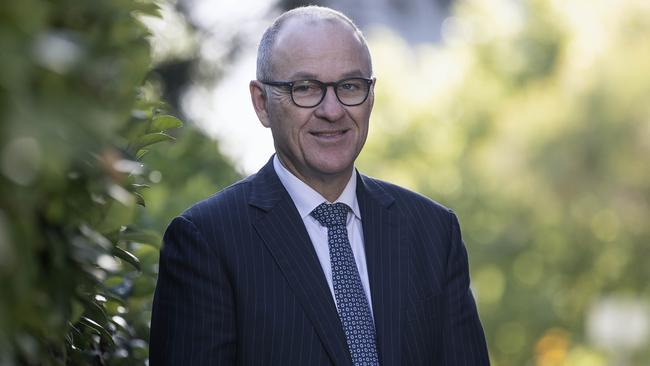PwC posts $3bn revenue, warns of massive staff turnover
The firm has consolidated its position as the biggest of the four accounting majors, with $3bn in revenue in the last financial year.
PwC Australia has consolidated its position as the biggest of the four accounting majors, with $3bn in revenue in the last financial year – as its chief executive, Tom Seymour, warns severe skills shortages have slowed the growth at the professional services firm.
The 2022 financial year results announced on Tuesday reveal a 17 per cent growth in the business with profit growth of 21 per cent, putting it ahead of Deloitte, KPMG and EY – all of whom have reported total revenues below $3bn.
PwC revenue after disbursements was $2.84bn, compared with $2.179bn for KPMG; Deloitte ($2.5bn) and EY ($2.39bn).
Mr Seymour said PwC faced intense labour challenges, with 22 per cent of staff leaving in the past year in an extremely tight market.
“We’re making a huge contribution to skills (in the rest of the workforce) but it hurts our business, it’s too high,” he said.
“It highlights that, notwithstanding record pays, record bonuses, record investment in … culture, the fact people are still leaving just goes to show how tight the market is for skilled and experienced people.
“Already in the last six months we’ve been what I call supply constrained on skills. You’re much more conscious of what jobs you can take on (and deliver a quality result). So has access to skills slowed our growth? Already there’s no doubt about it.”
Mr Seymour said there was no problem hiring graduates but hiring people with five or six years’ experience was “incredibly challenging” because “everyone’s hiring in that space”.
Closed borders had contributed to shortages but the real problem was the growth of the economy.
The firm’s fear of losing staff led to a record 108 per cent increase in incentive payments to its 10,000 employees and partners with average fixed remuneration up 9 per cent, and for partners 10 per cent.
Assurance revenue increased by 11 per cent to $730m; consulting was up 21 per cent to $740 million; and financial advisory which includes deals, PwC Private, legal, tax, and integrated infrastructure delivered more than $1bn – a 20 per cent lift.
Total tax contribution was $624m, up 20 per cent but with an average partner rate of 37 per cent, down from 42 per cent last year. The firm said the rate had come down to the average amount and was also due to various discrepancies, including lower leave balances post-pandemic.

Mr Seymour, who will be part of next month’s Jobs and Skills Summit, said the government had to increase skilled migration but ensure new entrants were spread geographically. Australia had to decentralise its population and wealth outside the capital cities to remain internationally competitive for labour.
“We need a policy not only to increase and bring in skills but to create ways to distribute those skills more broadly,” he said. “Covid has given us the ability to work remotely. That’s got to be part of it.”
The focus of next month’s summit was likely to be on targeted migration, increasing international students, skills training and policies around “where do you want to create those hubs of new skills around energy for example and energy reform?”
Another challenge for the summit was to work out how to allow the flexibility demanded by “the New Age gig worker”.
“How do we allow that to happen, whilst not letting those individuals be exploited, but don’t apply old world thinking to how to protect them so you just kill the sector,” he said.
“You don’t want to create an exploited class, which then leads to a bunch of social problems. (But) you’ve got to do it in a way in which you don’t basically just kill the business model.”
Australia needed more consistency in everything from payroll tax to registrations for apprentices to develop a more mobile workforce.
He said: ‘How do you create 100 per cent mobility of labour within Australia? We’ve gone backwards on that because of Covid. How do you take away any of the friction for a plumber or a cloud engineer as they move from place A to place B?”
Mr Seymour predicted more firms would bring offshore jobs back to Australia with on-shoring in models such as the two PwC “skills hubs” in Adelaide and western Sydney.
The hubs, which employ graduates and a casual labour force of undergraduates, initially attracted complaints that pay and conditions did not match workers in head office. But Mr Seymour said there was now pay parity between graduates in the main offices and the hubs which deliver work previously done offshore, in head office, or by clients.
“It’s more expensive than sending work offshore to, say, Bangalore but our view is that the quality is high,” he said.
While the location of the hubs meant living costs were lower, the biggest benefit was the “concentration of expertise,” Mr Seymour said.
About 48 per cent of the graduates who took roles in the Adelaide hub – expected to grow from 500 to 2000 workers – had studied in Sydney or Melbourne but moved to take the role.




